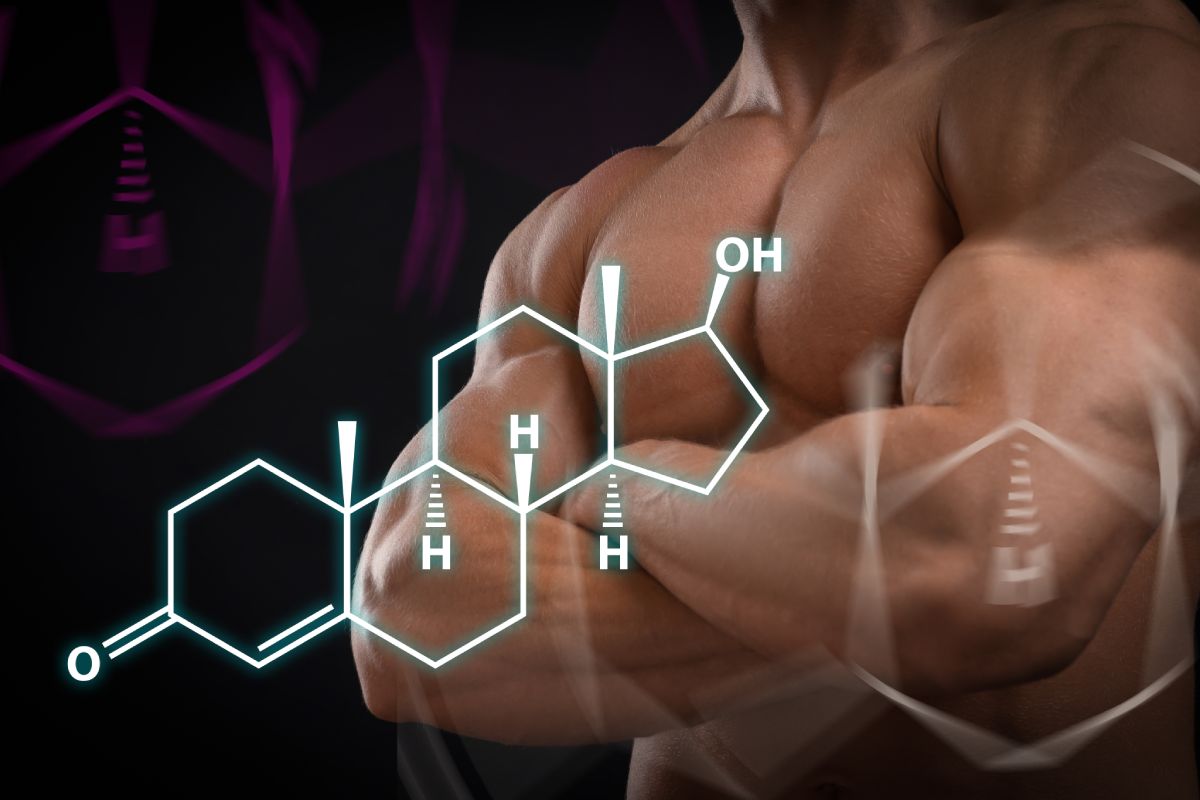Testosterone gets a lot of attention. For decades, it’s been linked to big muscles and an alpha mindset. But there’s so much more to this hormone than meets the eye. Men’s hormonal health—especially testosterone—plays a crucial role in nearly every aspect of male wellness. From mood and motivation to heart health and brainpower, testosterone matters more than most men realize. Let’s take a deep dive into this vital hormone, why it’s so important, and how you can keep your levels where they should be.
What is Testosterone?
Testosterone is the primary male sex hormone. Produced mainly in the testes, it’s responsible for the development of male characteristics—think deeper voice, facial hair, and muscle mass. But that’s just the beginning. This hormone also affects libido, bone density, red blood cell production, mood, and even cognitive ability.
Every man naturally produces testosterone, but levels can vary with age, lifestyle, and health. Understanding how it works in the body is the first step in taking control of your hormonal health.
The Wide-Ranging Role of Testosterone
Beyond Muscle and Libido: Unexpected Benefits
Testosterone is famous for promoting muscle growth and sexual function. But did you know it does much more?
- Supports Mental Health: Healthy testosterone levels are linked to lower risks of depression and anxiety. The hormone influences neurotransmitters in the brain, helping to regulate your mood and reduce feelings of stress.
- Boosts Cardiovascular Health: Testosterone helps in producing red blood cells. Balanced levels are associated with reduced risks of heart disease and metabolic problems.
- Strengthens Bones: Testosterone aids in bone mineralization, lowering the risk of osteoporosis and fractures as men age.
- Enhances Focus and Memory: Several studies show a positive link between optimal testosterone and cognitive performance, particularly in areas like verbal memory, spatial abilities, and processing speed.
The Domino Effect: What Happens When Testosterone Drops?
Low testosterone (often called “Low T” or hypogonadism) can affect men at virtually any age, though it’s more common as you get older. Symptoms are more subtle than you might think:
- Decreased motivation or “drive”
- Fatigue and poor energy
- Reduced muscle mass, increased body fat
- Mood swings or irritability
- Lower libido and erectile issues
- Impaired memory and focus
Many men assume these signs are just “part of getting older” and never realize a hormonal imbalance could be to blame.
Causes of Low Testosterone in Men
It’s normal for testosterone to decline as you age—about 1% per year after 30. But certain factors can speed up this drop or cause level to plummet unexpectedly:
- Chronic stress: Prolonged stress elevates cortisol, which can blunt testosterone production.
- Poor sleep: Irregular sleep, especially lack of deep sleep, disrupts hormone balance.
- Obesity: Extra body fat, especially around the belly, converts testosterone into estrogen.
- Poor diet: Diets high in processed foods and sugar hurt testosterone production.
- Sedentary lifestyle: Lack of exercise diminishes your body’s ability to produce testosterone naturally.
- Alcohol and drug use: Excessive drinking and drug use can directly damage the cells in your testes responsible for hormone production.
Why Men’s Hormonal Health Is Ignored (And Why That’s Changing)
Many men shy away from discussing hormonal health, seeing it as a “women’s issue.” It’s not. For decades, men were told to “tough it out” instead of looking for underlying causes for mood issues, weight gain, or lack of motivation.
Today, science—and a new generation of health-focused men—are changing the conversation around men’s hormonal health. There’s growing awareness that hormones matter every bit as much for men as for women.
Testing and Monitoring Testosterone: What You Should Know
It’s easier than ever to check your testosterone levels. Simple blood tests can be ordered through a doctor or specialist. Key things to keep in mind:
- Test in the morning. That’s when testosterone peaks.
- Know your numbers. Healthy adult men usually fall between 300–1,000 ng/dL (nanograms per deciliter).
- Talk to a professional. Results should always be interpreted in context—low levels with clear symptoms deserve medical attention, but not every “borderline” result needs treatment.
Natural Ways to Boost Testosterone
Worried about declining hormone levels? The good news: many natural, proven strategies support healthy testosterone production.
Prioritize Quality Sleep
Aim for at least seven hours of sleep a night. Deep, restorative sleep is when your body produces the most testosterone. Establish a steady routine to help your body—and hormones—perform at their best.
Eat Well for Hormonal Balance
Focus on whole foods, healthy fats, and lean proteins. Zinc and vitamin D are especially important nutrients for testosterone production. Foods like eggs, salmon, pumpkin seeds, and leafy greens are excellent choices.
Exercise, Especially Resistance Training
Lifting weights and high-intensity interval training (HIIT) have been shown to boost testosterone levels more effectively than steady-state cardio. You don’t have to be a gym rat; regular, moderate resistance workouts deliver major benefits.
Manage Stress Effectively
Chronic stress depletes testosterone due to high cortisol levels. Practice mindfulness, meditation, or even simple breathing exercises to ease tension and support your hormonal health.
Maintain a Healthy Weight
Excess body fat, especially around the abdomen, accelerates testosterone decline. A balanced diet combined with regular movement helps keep your levels optimal.
Avoid Excessive Alcohol and Smoking
Both can harm hormone production, hurt sleep quality, and increase body fat—all bad news for your testosterone.
Consider Professional Help When Needed
If natural interventions aren’t enough, don’t hesitate to consult a healthcare provider. Low testosterone is a real medical condition with effective treatments, ranging from lifestyle tweaks and supplements to hormone replacement therapy (HRT) in serious cases.
Myths and Facts About Testosterone
Myth 1: Only Older Men Need to Care
Fact: Men in their 20s and 30s can—and do—suffer from low testosterone, especially if they struggle with stress, obesity, or lack of activity.
Myth 2: More Testosterone is Always Better
Fact: Too much testosterone (from misuse of supplements or steroids) can cause mood changes, acne, heart issues, and other unwanted effects. Balance is the goal.
Myth 3: Testosterone Is Just About Sex
Fact: While it’s true testosterone is crucial for sexual health, its impact spans the entire body—from bones to brain function.
When to Seek Help: Red Flags You Shouldn’t Ignore
Don’t shrug off ongoing fatigue, unexplained weight gain, depression, or persistent “brain fog.” If you’re experiencing symptoms that go beyond normal ups and downs, it’s smart to talk to a doctor. Early action can prevent more serious health problems—and get you back to feeling your best.
Conclusion: Take Charge of Your Hormonal Health
Testosterone isn’t just for bodybuilders or action heroes. This powerful hormone affects all aspects of men’s physical and mental wellness. Recognizing the signs of low testosterone and taking proactive steps to support hormonal health can lead to more energy, a sharper mind, better mood, and stronger relationships.
For men, prioritizing hormonal health is a sign of strength, not weakness. You owe it to yourself—and those who depend on you—to stay at your healthiest.
Take the first step toward a more energetic, confident, and resilient version of yourself. Start today—with better sleep, smarter nutrition, regular activity, and an honest look at your health.
If you found this article helpful, share it with someone you care about and subscribe for more insights on men’s health, wellness, and performance!






